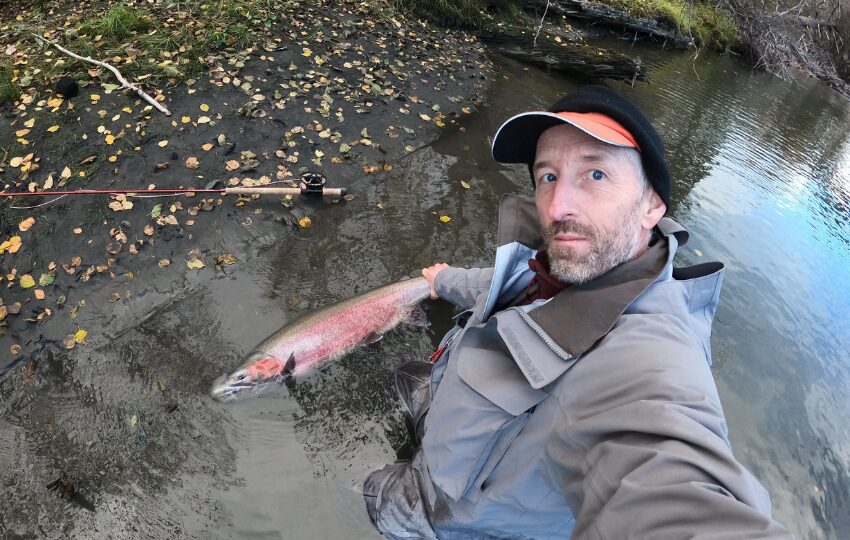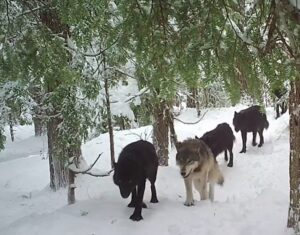
Prof. Andrew Hendry, PhD, didn’t have any expectations when he posted on TikTok for the first time, other than to share the wonders of nature with a broader audience. That’s why he was shocked when his first video earned him hundreds of followers and thousands of views literally overnight.
“It’s kind of fun,” says Hendry of his viral moment. “I was connecting with people who weren’t in academic circles and weren’t predisposed to this kind of material.”
Hendry is a professor in the Department of Biology and Tier 1 Canada research chair in eco-evolutionary dynamics. His research often focuses on fish, guppies, and finches, but on his Instagram and TikTok accounts he shares remote camera footage of bears, moose, wolves and lynx.
“[Social media] is not a core focus of my research. It’s more about outreach, and how cool nature and science is.”
Biology in the time of climate change

Tracking a pack of wolves in the remote wild is inherently cool, but Hendry’s academic work digs much deeper than that. His research areas centre on conservation, ecology, evolution, and behaviour.
“We ask, ‘what is the biggest disturbance occurring in this population right now?’ It could be climate change in some populations, hunting and harvesting in other populations, pollution in others.”
He’s investigated the effects of oil pollution on Trinidadian guppies, searched for signals of climate change among Darwin’s finches, and monitored the health of threespine stickleback fish.
“As a scientist, I want to provide solutions and ideas. I want to focus on the things that are having the biggest affect.”
Generation next
With the climate crisis front and centre, Hendry admits the future can look bleak. Yet despite the challenges Earth is facing, Hendry remains focused on the positive.
“There are certainly many disasters around the world, and many environments in which species and habitats are being destroyed. That’s depressing, but at the same time its motivational. There are some bright spots around the world that indicate that when people pay attention to these things, solutions do emerge.”
Those solutions may come from his own students.
“There is a much greater awareness of environmental concerns among current students,” he says. “I have a number of students working directly on conservation issues, and they really want to get out there and solve those problems. That’s a real reason for optimism.”

I enjoyed the article. Thank you.